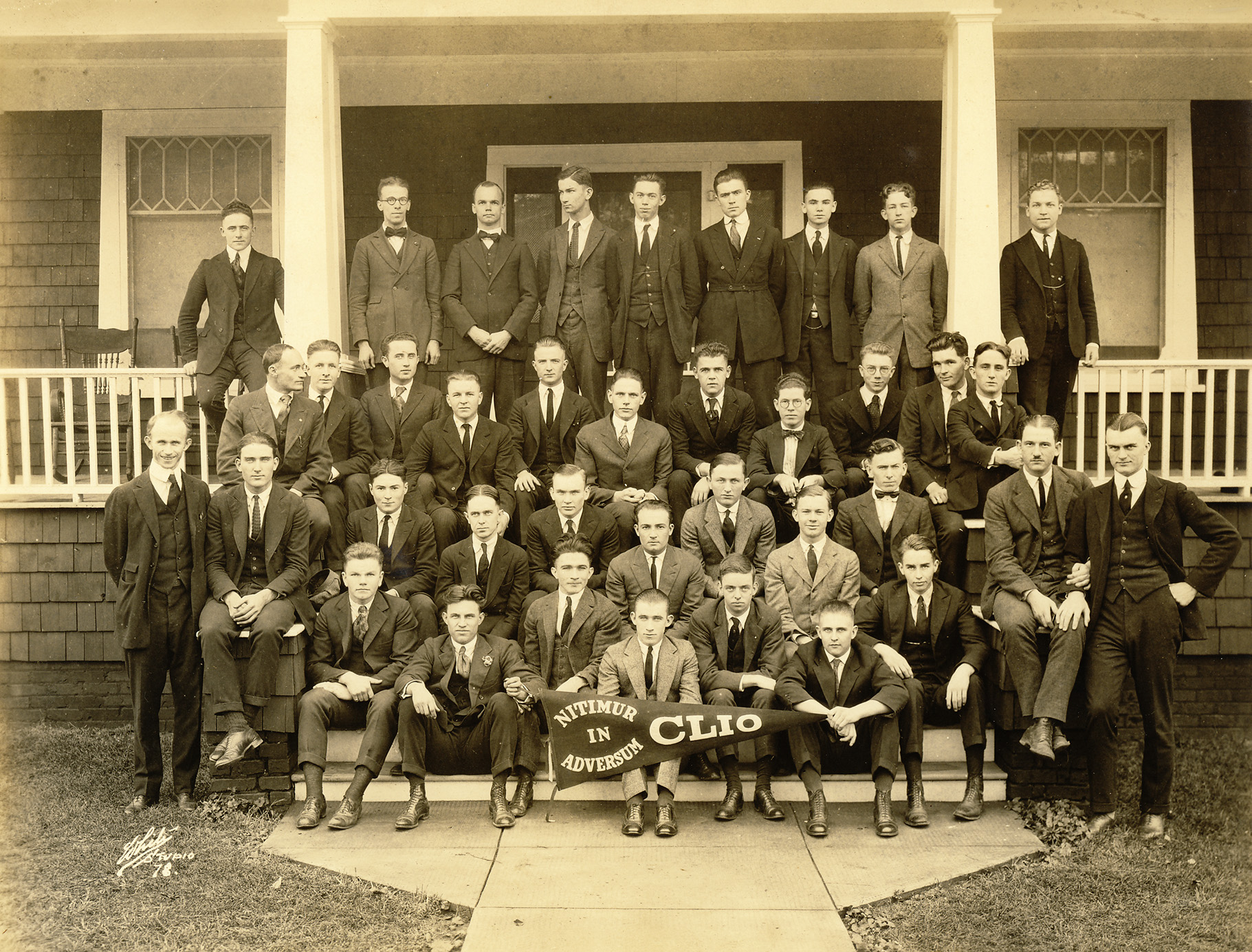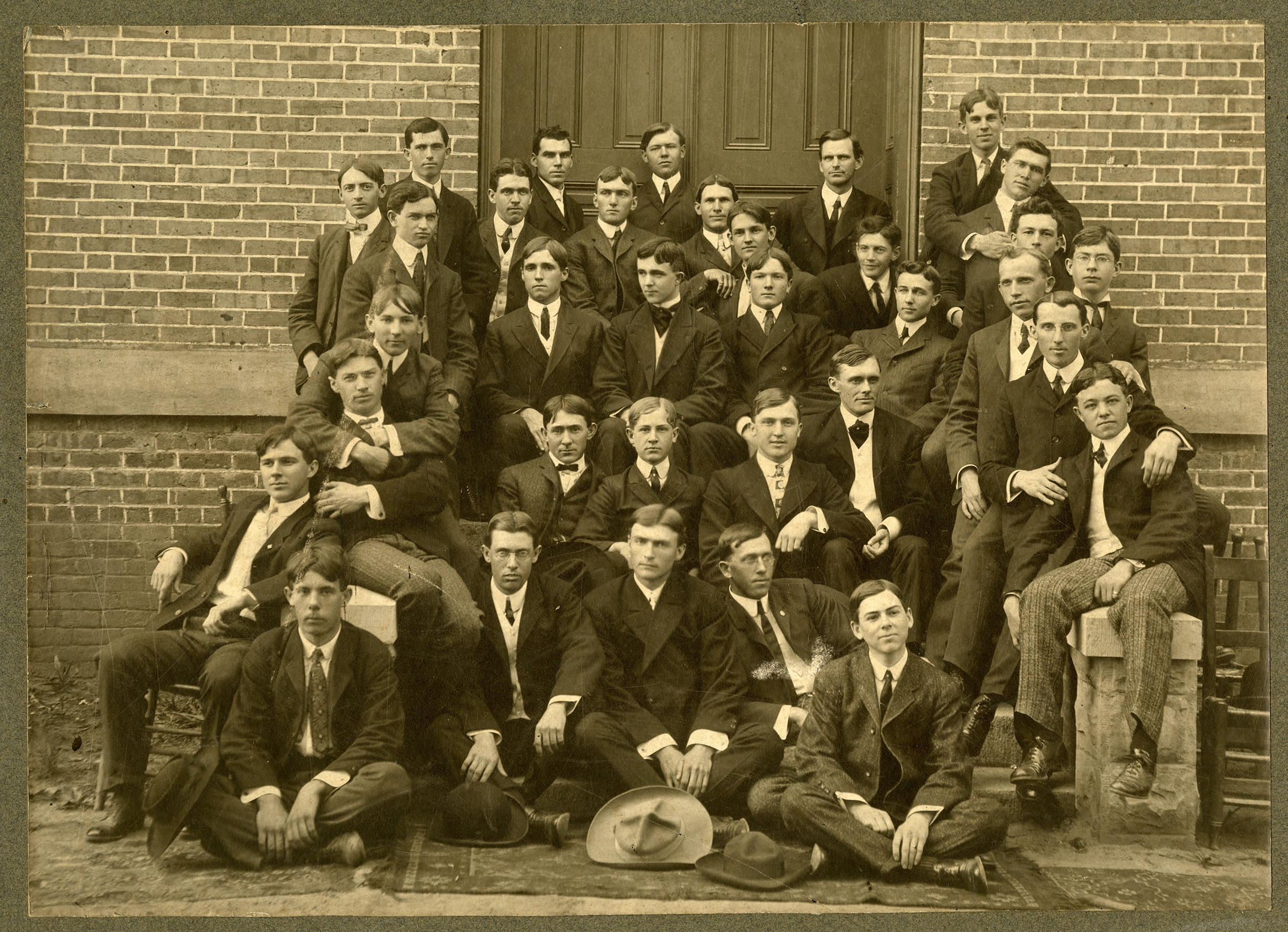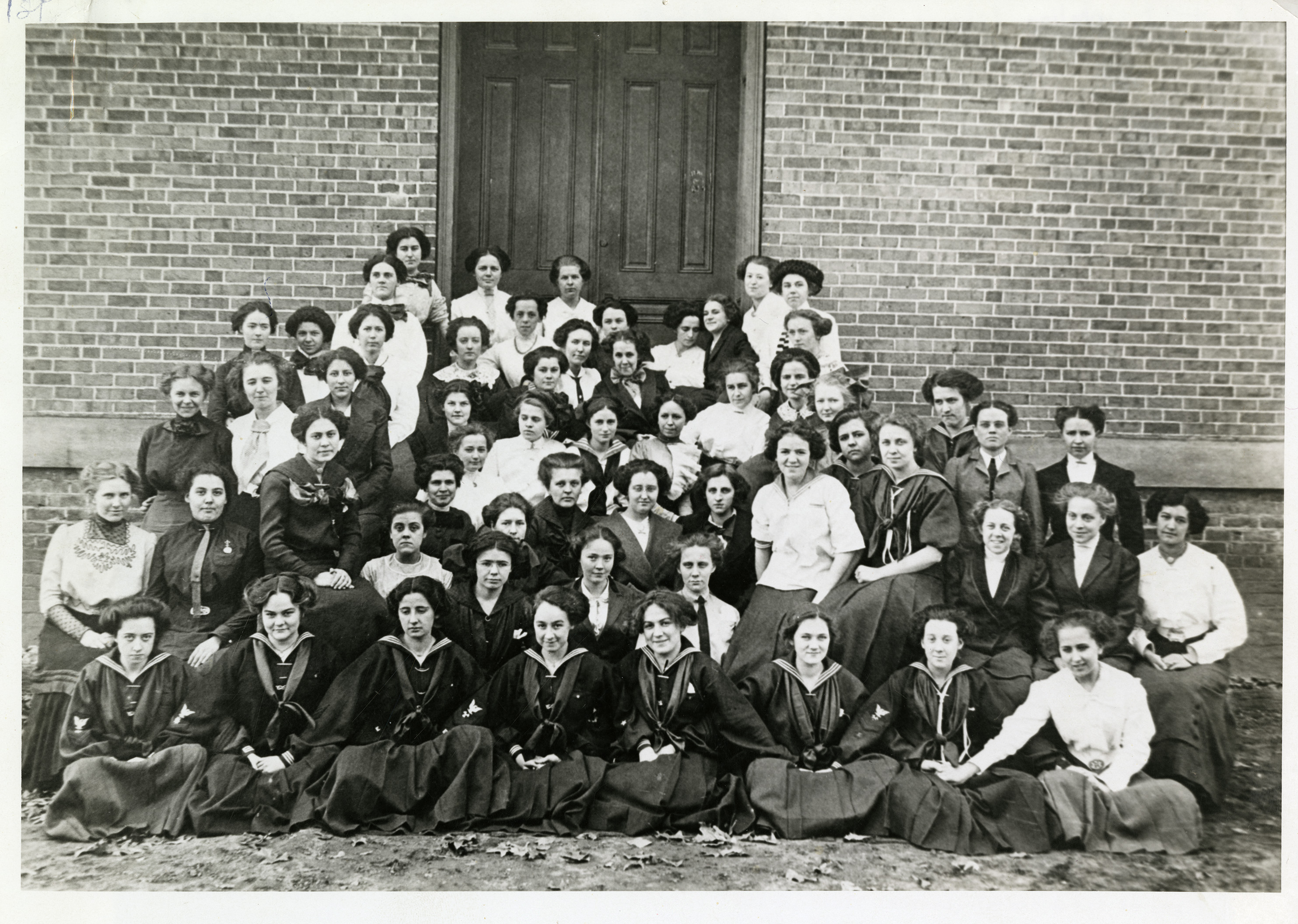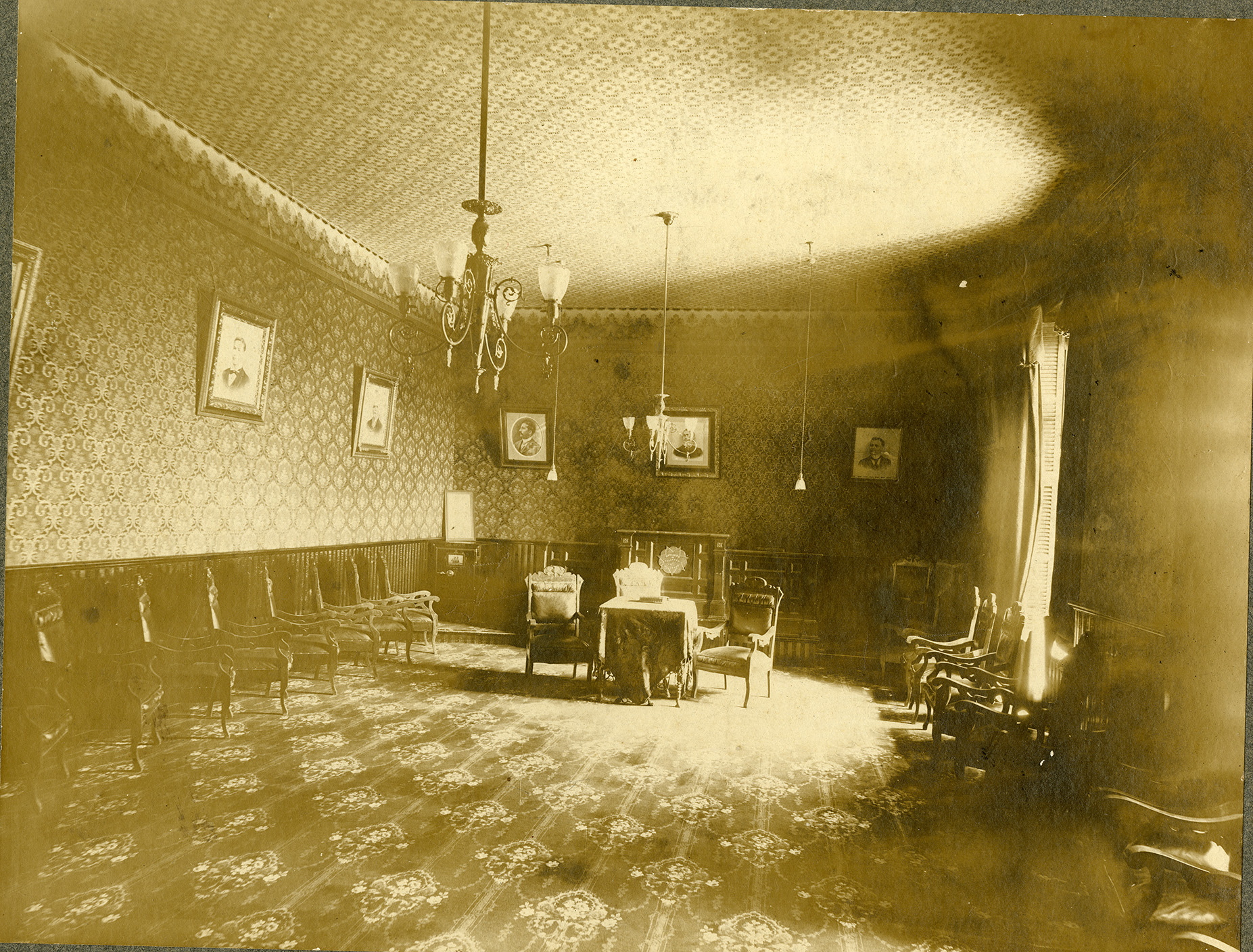The Literary Societies of Elon College
Randall Bowman
December 13, 2013
In 1913, the first yearbook was published at Elon College, the PhiPsiCli. The name was derived from the three literary societies that existed at Elon during its early years; the Philologian, Psiphelian, and Clio Societies. These three organizations were founded soon after the college opened its doors; like most college literary societies, they no longer exist. Literary societies were a mainstay of college life from the colonial era to the early twentieth century. Often just called “societies,” they usually had names derived from either Latin or Greek. Societies organized debates and social events, and members wrote original compositions such as essays, poetry, and music. Since most college graduates were men who went into law, the ministry, or teaching, literary society activities supplemented the classical education students received. Their debates gave members the chance to practice their oratory and rhetorical skills.
In 1890, students formed the original three societies at Elon. The Philologian and Clio Societies were for male students; since Elon was unusual in that it was co-educational, another society, the Psiphelian, was organized by Elon’s female students. According the Elon College Catalogue of 1890-1891, “The Philologian, Clio, and Psiphelian Societies meet weekly for improvement in composition, oratory, reading and debate, and acquiring a knowledge of parliamentary law.” Durward T. Stokes, writing in Elon College: Its History and Traditions, wrote: “Suitable rooms were assigned the societies in the College Building for their meetings on Friday evenings or Saturday mornings. Within a few years, each of these ‘halls’ was decorated with wallpaper and furnished in an attractive manner.”
The college faculty regarded participation in the societies important enough to require membership in one of the three societies in Elon’s early years; students were penalized for not being active members. Graduating seniors had their society membership listed in their activities in the PhiPsiCli. But membership was not all work and debate; the societies put on formal balls, banquets, and other socials for their members. Stokes writes, “Frequently one or the other obtained permission to have an ‘ice cream supper’ or a party of some kind, and the three societies became the center of social life at the college during its first three decades.” The societies organized these events not just for fun, but also as fundraisers; the public was invited to attend, and guests paid for their refreshments. Each society also had an “entertainment” event that was on the college’s calendar. These entertainments varied; the societies staged plays, recitals, and readings.
An annual highlight on campus was the debate between the two men’s societies, the Philologian and the Clios. Stokes writes that “Although the Psiphelians, the only women’s society, faced no competition, intense rivalry arose between the two men’s groups.” The annual debate of 1906 must have been lively indeed; the cheering for each side’s speakers was so enthusiastic that the audience was considered too rowdy by Elon’s administration. Promises by the students that their conduct would be exemplary during future debates allowed the annual debate to be resumed the following year.
In a joint effort, the three societies created the very first student publication on campus, The Elon College Monthly. This magazine, first published in June 1891, featured articles on contemporary issues, written by members of the societies, as well as local news announcements and advertisements from local businesses. Yearly subscriptions were a dollar; the Monthly was published until 1896.
After World War I, times were changing at Elon, and these changes affected all the societies on campus. Other student organizations were being organized on campus, including Greek fraternities and sororities; the societies no longer held the sway that they once had. The Old Main Building fire of 1923 destroyed all three societies’ halls, as well as the iron safes containing their records. When Alamance Building opened in 1923, it had halls for the societies, just as the Old Main Building had. But the three organizations were not to survive much longer; in 1933, the three were disbanded.
There were other literary societies organized at Elon. In 1918, the two more societies were organized: the Apollo Society for men and the Thalia Society for women. However, by 1923, the Apollo Society had been disbanded due to the shrinking student body after World War I. The Thalia society changed its name to Psychaleon and then in 1924 to Psykaleon. It lasted until 1934. In 1935, Dr. Johnson’s Literary Society for men and the Panvio Literary Society for women were organized, and existed on campus during World War II.
By the 1950s, most literary societies had disappeared from colleges and universities in the United States, including Elon. There was a short-lived attempt to revive a men’s literary society at Elon, the Lloyd E. Whitley Literary Society, which is mentioned in The Bulletin of Elon College. It was named for Lloyd Elom Whitley, an Elon student who was killed in World War II. This society was only in existence from 1948-1950. The Panvio Society was in existence until 1950; it is the last recorded literary society at Elon College. As Durward Stokes observed in his history of Elon College, “Such organizations had seen their day and were gone forever from Elon’s campus, as they were from most other colleges.”




Leave a Reply